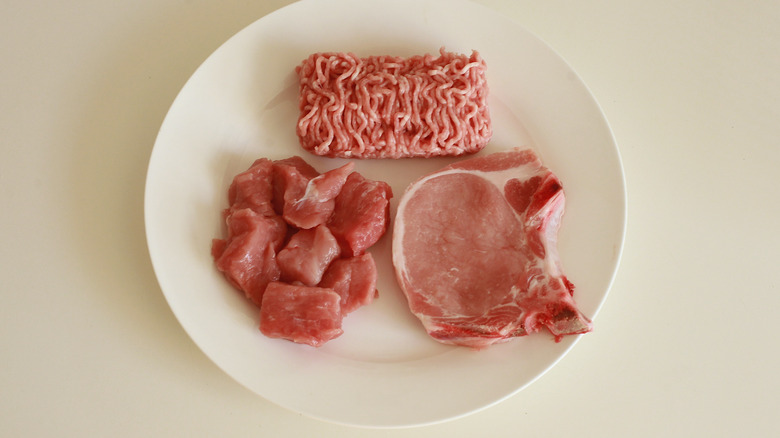What Vikings Really Ate To Survive
The Vikings are, perhaps not unlike the pirates who terrorized the oceans in the 17th and 18th centuries, one of the more misunderstood groups from Western history — which is to say, our collective memory of them is not entirely based on reality. Popular culture has remembered them as vicious marauders who plied their trade through pillaging, piracy, and murder — and that's true, to a point. However, the society was also managed through trade and diplomacy, according to Britannica. Also, many Vikings were, individually, skilled artists and/or poets, according to Sons of Vikings.
Much of what history knows for certain about Vikings comes from repeated oral tradition, as well as what few written records remain, as well as from archaeological findings. And we know of a more mundane reality about the daily lives of Vikings: what they ate. Perhaps surprisingly, despite coming from a cold and unforgiving climate that doesn't favor agriculture, the Vikings ate a healthy diet, particularly in comparison to that of other Europeans of their day.
The Vikings had a surprisingly healthy diet
The mainstay of the Viking diet, according to History, was pork. The climate of the Vikings' home region was and is amenable to raising hogs, who matured quickly and went from piglet to plate rather quickly. The society also raised beef, goats and sheep, and even raised and ate horses until Christianity put an end to that. And of course, being seafaring people, the Viking diet was filled with fish.
Indeed, this ready access to meat put the Vikings at an advantage, nutritionally, over other Europeans of the day. Unlike their peasant counterparts on the mainland, all people in Viking society, from kings to those without means, had plenty of meat in their diets.
Of course, there's more to a nutritional diet than just meat, and the Vikings had access to other food sources as well. Grains and vegetables such as wild carrots were also abundant, as were flavoring herbs such as mustard and wild horseradish.
Unfortunately, their diet wasn't perfect, and archaeological evidence from Viking graves has revealed that some suffered from intestinal worms or sometimes swallowed weeds that are poisonous to humans.

